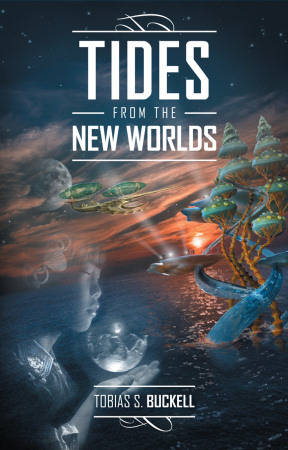This is the fifth interview and the seventh post in my series on inclusivity and exclusivity in fiction. You can find a full list of other posts so far at the end of this piece.
In today’s interview we talk with author Anaea Lay.
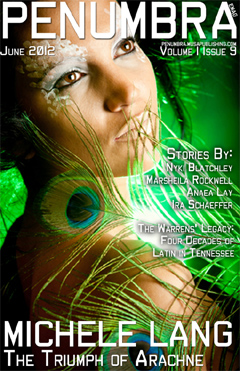 LUC: Modern fiction–and some might argue fiction throughout history–seems to have a much more limited cast of characters than real life does, often putting characters who are straight, Caucasian, fully able, neurotypical, relatively young, and otherwise a lot like the typical American CEO or politician center stage. From your point of view, what difference does it make? What, if anything, is there to be gained from having a more diverse range of people in the center of our novels and stories?
LUC: Modern fiction–and some might argue fiction throughout history–seems to have a much more limited cast of characters than real life does, often putting characters who are straight, Caucasian, fully able, neurotypical, relatively young, and otherwise a lot like the typical American CEO or politician center stage. From your point of view, what difference does it make? What, if anything, is there to be gained from having a more diverse range of people in the center of our novels and stories?
ANAEA: I’d specify that modern English-language fiction does that. You get a much broader cast if you branch out into fiction from other parts of the world.
That said, the biggest risk with limiting your cast is that you’ll be boring. There’s nothing wrong with writing about a straight white middle class American male in good health, but you better give me something that’s going to set that work apart from all the other stories about the same character. If you stretch out and write about somebody else, somebody I haven’t read about a thousand times already, you’re starting off on stronger ground.
It’s one of those truisms you hear all the time that there are only x number of plots and every story is just a variation on one of them. Expanding your cast of characters opens up your possibilities for variations. It lets you tackle new problems, see new obstacles, go to different places and play with new ideas. As a reader, I like to see different characters because finding new things is part the joy of reading. When I get bored, I start to nit-pick what I’m reading and everything falls apart for me.
There’s also an element of excitement when I run into a character who’s like me in a way that I’m not used to encountering. There really ought to be more child-hating polyamorous women in fiction, because I’m a sucker for them.
As a writer, creating interesting characters keeps me engaged. I’m not a planner, so I rely on my characters going interesting places and doing interesting things to find my plot and get me through it. “Unmarked” characters run a high risk of winding up invisible to me while I’m writing. But the characters who challenge me, who come at the world from a different angle or background, force me to be a better writer. World building matters so much more because they way they interact with the world and the world interacts with them is different.
Making sure your prose is spot on matters because you can’t rely on the assumptions of what everybody knows about your default character to do your work for you and you might be bumping up against expectations trained by those defaults.
LUC: So does a broader range of groups of people attract you when reading fiction, too? What do you look for in fiction you read? What kinds of novels or stories would you most love to find in this regard?
 ANAEA: I’ll read most anything if its good, and some things even when they aren’t. Having a broad range of characters, or characters I haven’t already read umteen billion stories about definitely stands out when I’m looking for fiction. One of my favorite authors right now is Nora Jemison. A lot of that is her prose which is lush and gorgeous, but her characters are fascinating and complex and not people I’ve read tons of things about, which makes it really easy to wind up completely immersed in her story. I’m not mentally checking off tropes as I read, and I’m not switching into analytical-reader-mode just to find something interesting enough to stay engaged.
ANAEA: I’ll read most anything if its good, and some things even when they aren’t. Having a broad range of characters, or characters I haven’t already read umteen billion stories about definitely stands out when I’m looking for fiction. One of my favorite authors right now is Nora Jemison. A lot of that is her prose which is lush and gorgeous, but her characters are fascinating and complex and not people I’ve read tons of things about, which makes it really easy to wind up completely immersed in her story. I’m not mentally checking off tropes as I read, and I’m not switching into analytical-reader-mode just to find something interesting enough to stay engaged.
I don’t look for fiction with character diversity as an explicit criterion. That said, I hate reading things I can predict from early on because I know the shape of the tropes they’re using. Having non-standard characters is a signal that the author is doing something different, and that makes it much more likely that they’re doing something I’ll find interesting. Greek and Norse gods? It’ll take a lot to make those compelling again. Tlazolteatl, though? Do your research well enough to keep from hurting me, and I’m there. Whiny white guy who wants to get a girl? Meh. Whiny Chinese-American guy who’s lost his connection to his mother? I contemplated crying. That’s what I want to read.
LUC: What other kinds of inclusivity, apart from race and ethnicity, connect particularly well for you or raise your interest in a story?
ANAEA: Women getting to play traditionally male tropes, and and bi or homosexual characters outside their standard boxes. See Alice from the BBC series Luther for a great example of the former, “Astrophilia” by Carrie Vaughn in Clarkesworld for the latter.
LUC: What do you hope to see happening among writers over, say, the next decade that’s different from what we’re seeing now, in terms of inclusivity?
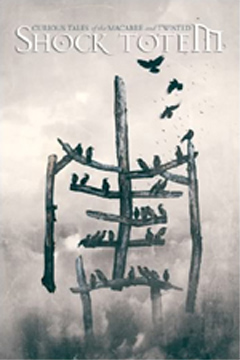 ANAEA: I’d hope that going forward we continue to find the characters who’ve been neglected and tell their stories, and to keep talking to what’s going on. For example, I was having a conversation where somebody was lamenting the loss of the “Coming out” story as a compelling story. At this point, there have been so many stories about the difficulties of coming out, and coming out is so much easier than it was twenty or thirty years ago, that it’s hard to bring anything new to that particular story, even though it was hugely popular in the 90’s. I’d hope that we’d keep pressing the boundaries, keep making progress to the point where things that seem fraught now become normal. But I’d also hope that we don’t neglect where we are now or forget what it’s like to be breaking this ground and learning these lessons.
ANAEA: I’d hope that going forward we continue to find the characters who’ve been neglected and tell their stories, and to keep talking to what’s going on. For example, I was having a conversation where somebody was lamenting the loss of the “Coming out” story as a compelling story. At this point, there have been so many stories about the difficulties of coming out, and coming out is so much easier than it was twenty or thirty years ago, that it’s hard to bring anything new to that particular story, even though it was hugely popular in the 90’s. I’d hope that we’d keep pressing the boundaries, keep making progress to the point where things that seem fraught now become normal. But I’d also hope that we don’t neglect where we are now or forget what it’s like to be breaking this ground and learning these lessons.
There’s an arc you can see over time as you look at fiction. If you look at some of the classics that try to paint a better future, or warn about a problematic future, they’re ridiculously simple and naive by today’s standards. Just compare Brave New World to The Windup Girl and you’ll see what I mean. I’d much rather have more fiction like The Windup Girl, and I’m excited about where that conversation will go from here because it’s going to have to break new ground, get more nuanced, richer. But it’s handy to have Brave New World as a yardstick to see how far we’ve come, or haven’t come.
You can do the same thing with looking at trends across time to include more characters. It’s still easy to run across cringe-inducing badly written women, but the good ones aren’t the exception anymore. There seems to be a movement toward non-white characters and pulling from non-western traditions and while a lot of that is creators deliberately making an effort to do that, audiences are getting savvy and starting to demand it, too. I’m not the only jaded and bored reader our there.
So I suppose I don’t have any specific desire for ten years from now, except that we keep doing what we are doing, and keep getting better. Though I will not complain if sparkly vampires have disappeared.
- 7/27 – interview with Leah Bobet
- 7/29 – Where Are the Female Villains?
- 8/3 – interview with Vylar Kaftan
- 8/9 – Concerns and Obstacles (multiple mini-interviews)
- 8/10 – James Beamon on Elf-Bashing
- 8/17 – Steve Bein on Alterity


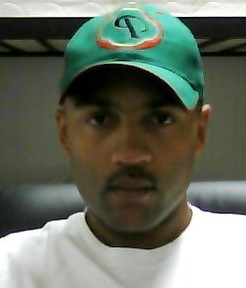
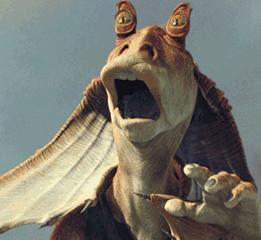


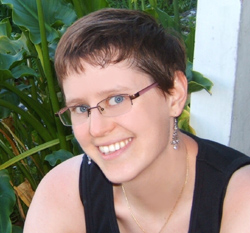
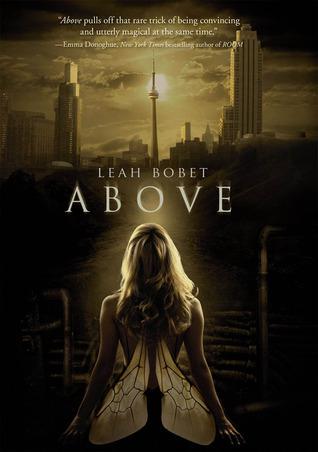



 Lawrence M. Schoen
Lawrence M. Schoen
